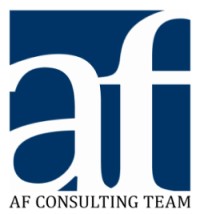When was the last time you actually saw a resume? Depending on the position you are filling, you might never see one, but when you do (and I always expect a resume no matter the position I am filling), there are definitely specific items I look for that will determine whether or not a candidate gets a call back.
Here are the top 5 items I look for when I’m reviewing a resumé:
1. One page only.
Unless I asked for an official CV, I don’t need to see the intense resumé padding, including all the juicy (and not so juicy) tidbits from a candidate’s summer working at the pool when they were twelve. I’m looking for honesty and concise accounts of what’s important or relevant to the job opening.
2. Relevant information only.
Speaking of relevant, I don’t care if a candidate participated in their community theatre program fifteen years ago. If the provided information is more than five years old, the resumé or cover letter better include very specific information that explains its current relevance.
Moreover, relevancy isn’t just work experience. When I’m looking at younger, less experienced candidates, I’m looking at what they did besides work. Maybe that includes extracurricular activities, volunteer work, language or technology skills, etc. Whatever makes them right for the position is considered relevant.
3. References available.
It’s no longer necessary to include a list of personal and professional references on the bottom or the second page of a resumé. The simple phrase “A list of references is available upon request” should suffice. But I always ask for references and I always check them. You’d be surprised how many people either completely fake their references, or get questionable reviews from the ones provided. It may not be something I want to see on the actual resumé (after all, I’m only going to ask for references from my short list), but good references are key.
4. Contact information!
You’d think this would be obvious, but I’ve actually received resumes without a way to contact the applicant. Make sure your candidate Includes everything they will check and you will use—phone, address, and especially email (a professional one, not imakehugemistakesdonthireme@aol.com).
5. Cover letter for serious candidates.
This may seem old fashioned and antiquated, but for old-school bosses like me, it’s still important. A cover letter can fill in the blank spaces on an applicant’s resumé and help flesh them out as people and potential employees.
Bonus, if I see an applicant who is the only person to submit a cover letter, they automatically stand out from the competition as thorough, thoughtful, and serious…and they usually get a call back, even if their resumé is lacking in another area.
With the onslaught on online applications and informal interviews, resumés are utilized less and less. However, that doesn’t make them obsolete. A well-crafted resumé is still essential in the work market and as an owner, manager, or Human Resources representative, you should still be looking for the candidates who outshines the competition in this very easy way. Good luck hiring!
What do you expect to see on a resumé?
Do you require them?

